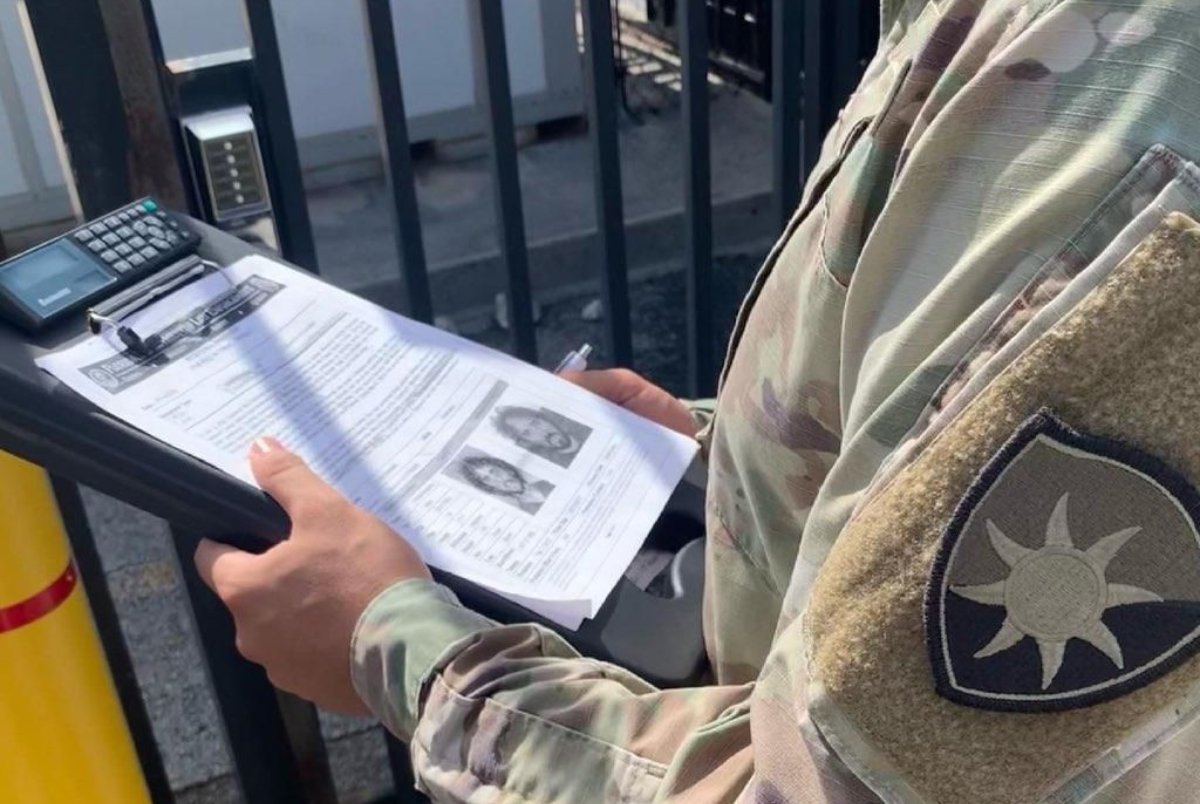
Photo courtesy of Thomas Kennedy

Audio By Carbonatix
Over the years, Miami-based political activist Thomas Kennedy has been known to disrupt Republican Gov. Ron DeSantis’ events with shouts of disapproval and made headlines when he called DeSantis “an embarrassment” at a press conference in 2020 for his response to COVID-19. But last year Kennedy learned via a public-records request that, following those incidents, the Florida Department of Law Enforcement (FDLE) had placed him on a “situational awareness” list, labeled him a “known agitator,” and were surveilling him in an attempt to keep him away from DeSantis, his elected representative.
Now, in a June 15 complaint filed in federal court against DeSantis, the City of Miami, Miami-Dade County, and FDLE Acting Commissioner Mark Glass, Kennedy alleges that the government violated his constitutional rights to free speech, due process, and equal protection under the law by placing him on a “situational awareness” and barring him from press conferences. Kennedy is asking for nominal damages and primarily seeking declaratory relief. Mostly, he seeks access to FDLE’s records on him and his alleged associates to determine the scope of the government’s surveillance and to change Florida’s policies regarding access to public meetings.
“If the argument is that I’ve been disruptive in the past, I object to that because we should be able to be disruptive if we pay the governor’s salary,” Kennedy tells New Times. “For taxpayer-funded events, it’s not in the interest of transparency and free press to restrict access to the public, particularly in the so-called Sunshine State where you have sunshine laws for open government.”
In April of 2021, Kennedy drove to PortMiami to attend a press conference where DeSantis discussed his plans to sue the federal government over its COVID-induced ban on cruise travel. But Kennedy had barely parked his car when Miami-Dade police officers detained him and barred him from entering the event. The officers’ swiftness seemed suspicious to Kennedy – as if they’d been waiting for him.
Kennedy and Occupy Democrats executive editor Grant Stern filed a public-records request and obtained 83 pages of records that revealed that FDLE had labeled Kennedy a “known agitator” and warned local police about him in advance of the PortMiami event. FDLE agents also appear to have been tracking Kennedy’s social media, car, address, and a list of his alleged associates as far back as July 2020.
“As soon as I learned that police were looking for Thomas’ car, my journalistic instincts told me this was more than just a trespassing case,” Stern tells New Times. “It took nine lawsuits to vindicate that hunch and prove that the governor’s office pursued a high-level censorship campaign against him for his postings on social media. If he doesn’t prevail in his lawsuit, then free speech doesn’t exist in Florida.”
“If he doesn’t prevail in his lawsuit, then free speech doesn’t exist in Florida.”
FDLE’s file on Kennedy notes that he has “no history of violence” but is known to perform direct protest actions such as the “sleeping dragons” protest maneuver, which involves protesters handcuffing their arms together inside PVC pipes to make it difficult for police to move them.
In June 2021, at a DeSantis press conference at the National Guard armory in Miami, Kennedy saw Miami police officers and military personnel examining FDLE documents that pertained to him. Photos reviewed by New Times show two military officers and two Miami police officers reviewing a clipboard containing photos of Kennedy’s face and personal information. The document included the faces of additional people whose identities could not be discerned from the photos.
Kennedy included the City of Miami and Miami-Dade County in the lawsuit because he believes they’re in possession of FDLE’s files on him.
“In this case, Governor DeSantis and the other Defendants are not only discriminating against Plaintiff’s speech based on the content or viewpoint of the Plaintiff, they have also added him to a ‘No-Entry’ List based on the content or viewpoint of Plaintiff’s speech,” reads Kennedy’s complaint, which has been embedded at the end of this article.
Kennedy, who has written numerous opinion columns for the Sun-Sentinel, Latino Rebels, and Occupy Democrats, is listed as an opinion columnist for Occupy Democrats. In his lawsuit, Kennedy identifies himself as a journalist and member of the press who possessed credentials to attend press conferences held by the governor.
Howard Wasserman, a First Amendment attorney and professor at Florida International University, tells New Times that government officials are allowed to limit access to press conferences to select members of the press unless the event is a public forum. Florida generally does not limit the definition of the press to exclude opinion columnists, Wasserman says, but government officials are allowed to keep certain people out of press events so long as their reasoning doesn’t stem from what that person has written.
“They can impose some restrictions on who is allowed to attend the press conference, but those restrictions have to be viewpoint-neutral and content-neutral,” Wasserman explains. “It can’t be based on stuff he writes and says about DeSantis.”
Kennedy considers himself an “advocacy journalist” who writes to further a political cause and claims he has been persecuted because his opinions have criticized the governor.
“Just because you’re partisan press doesn’t mean you’re not press,” Kennedy argues.
DeSantis’ office did not respond to New Times‘ emailed request for comment.